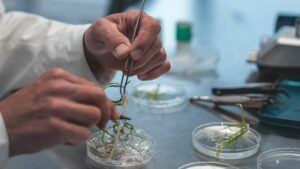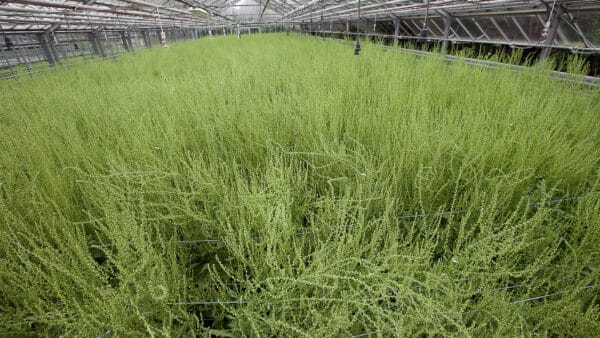Nebraska scientists’ comprehensive metabolic model aims to understand the effects of temperature stress on corn and explore how a specific fungus could mitigate the issue.
A team of University of Nebraska scientists said in a news release that they have developed the most comprehensive metabolic model of corn to date. This model enables the exploration of how temperature stress impacts the plant and investigates the role of a specific fungus in mitigating these effects.
This initiative builds upon previous efforts where the team constructed a metabolic model focused on corn roots to examine how the plant manages nitrogen under stress. Rajib Saha, the Richard L. and Carol S. McNeel associate professor of chemical and biomolecular engineering and the project’s lead researcher, along with his team, have broadened their model to include the entire plant. This expansion facilitates a deeper investigation into the complex metabolic processes, their genetic foundations, and the various stressors that could hinder crop yield.
The model centers around the corn hybrid B73, a strain developed in the early 1970s at Iowa State University, renowned for its genetic qualities that are instrumental in producing food, feed, and various industrial products. This hybrid and its progeny constitute a significant portion of the genetic base for the majority of hybrid corn cultivated globally.
The Nebraska team’s creation of a multi-organ metabolic model for corn, unprecedented in its scope, enhances research efficiency and speed beyond what is possible with traditional field studies. According to Niaz Bahar Chowdhury, a doctoral candidate collaborating with Saha, this model also aids field researchers in accelerating and refining their experimental work.
Climate change is poised to reduce corn yields by 7% to 18% due to temperature stress.
“There is a pressing need to develop high-yielding maize genotypes capable of withstanding temperature stress,” Saha said in the release.
The research adopts a comprehensive approach to understanding plant metabolism and its adjustment to combat temperature stress. It identifies how such stress can impede various physiological processes, including photosynthesis, carbohydrate and starch synthesis, and the biosynthesis of amino acids and lignin. Additionally, temperature fluctuations can harm enzymes and tissues, disrupt flowering, and provoke oxidative stress during the reproductive phase.
Saha’s team introduced data on extreme heat and cold into their model, revealing metabolic bottlenecks that hinder growth, with heat posing a particularly severe challenge. Given the anticipated continuation of climate change, the team said their findings underscore a critical need for strategies to preserve crop growth under adverse conditions.
One strategy involves genetic engineering to create hybrids less susceptible to temperature stress, a method that, while effective, is time-consuming. Alternatively, the researchers explored the use of Rhizophagus irregularis, a beneficial fungus known for its role as a soil inoculant, discovering its efficacy in overcoming metabolic bottlenecks under both hot and cold conditions. This fungal treatment not only enhanced overall plant biomass; it also boosted growth rates in specific plant organs. Future studies will leverage this metabolic model to examine the effects of R. irregularis on plant metabolism under varying nitrogen levels.
Chowdhury and Saha indicated their model will be accessible to other researchers interested in exploring different stress factors on corn.
The study, which received support from the National Science Foundation and the Department of Energy, was detailed in an article published in iScience. Contributors to the research include experts from Iowa State and Pennsylvania State universities, as well as the Université Paris-Saclay, INRAE, AgroParisTech, Institut and Centre de Versailles-Grignon, and Institut National de Recherche pour l’Agriculture in France.













